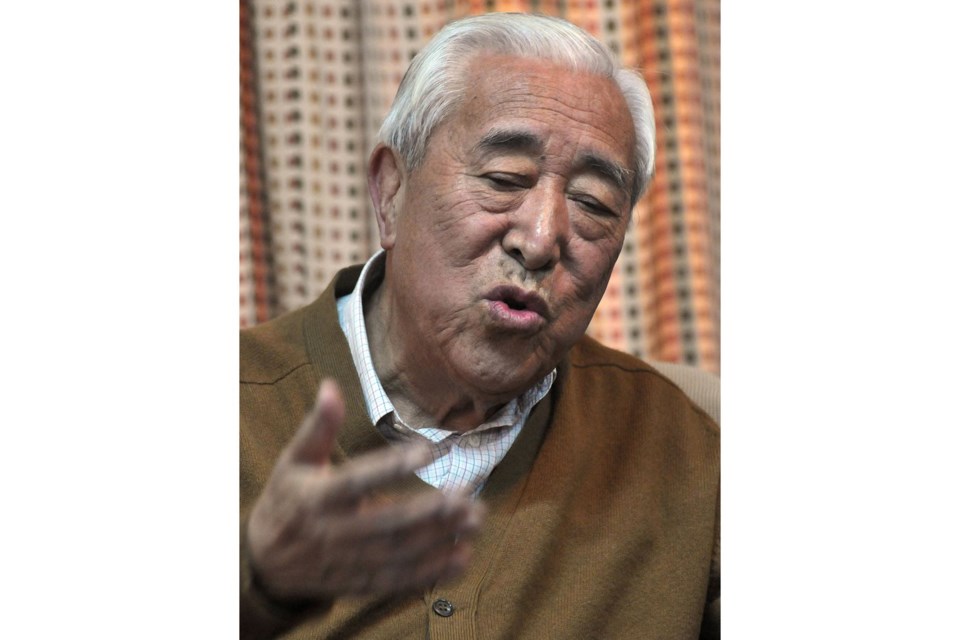NEW DELHI (AP) ÔÇö The elder brother of the Dalai Lama and former chairman of the Tibetan government-in-exile in India, Gyalo Thondup, who led several rounds of talks with China and worked with foreign governments for the Tibetan cause, has died. He was 97.
Thondup died at his home in Kalimpong, a hill town in the Himalayan foothills of eastern West Bengal state, on Saturday evening, media reports said. No other details were immediately released about his death.
Tibetan media outlets credited Thondup for networking with foreign governments and praised his role in facilitating U.S. support for the Tibetan struggle.
The Dalai Lama led a prayer session for Thondup at a monastery in Bylakuppe town in IndiaÔÇÖs southern state of Karnataka on Sunday where the spiritual leader is currently staying for the winter months.
He prayed for ThondupÔÇÖs ÔÇťswift rebirth,ÔÇŁ in accordance with Buddhist traditions, and said ÔÇťhis efforts towards the Tibetan struggle were immense and we are grateful for his contribution.ÔÇŁ
Thondup, one of six siblings of the Tibetan spiritual leader and the only brother not groomed for a religious life, made India his home in 1952 and helped develop early contacts with the Indian and U.S. governments to seek support for Tibet. In 1957, Thondup helped recruit Tibetan fighters who were sent to U.S. training camps in subsequent years, a report by the U.S.-funded Radio Free Asia said.
According to RFA, Thondup was primarily responsible for liaising with the Indian government, including with Prime Minister Jawaharlal Nehru, when the Dalai Lama escaped to India in 1959. He also played a key role in establishing Tibetan leadersÔÇÖ relations with U.S. officials.
Thondup began discussions between Tibetans and Chinese leaders in 1979, in a departure from his earlier approach, which sought an armed struggle against Chinese control of Tibet. The meeting laid a basis for a series of formal negotiations between the Dalai LamaÔÇÖs official envoys and the Chinese leadership that continued until they were halted in 2010.
In an interview with RFA broadcast in 2003, Thondup said neither India nor the U.S. would be able to solve the Tibetan issue, and that progress could only come through face-to-face talks with Beijing.
Thondup served as chairman of the Tibetan government-in-exile based in IndiaÔÇÖs northern hillside town of Dharamshala from 1991 to 1993.
The Associated Press

